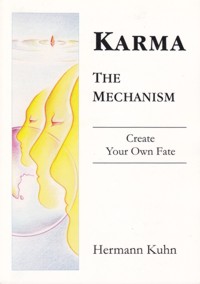
Tadviparyayo nichairvrityanutsekau chottarasya (26)
- praising others
- modesty
- proclaiming the good qualities and achievements of others
- refraining from praising our own qualities and achievements
- respect for those further advanced towards freedom from all karmic limitations
- freedom from pride in our own achievements
While striving for freedom from all karmic limitations high or low status holds little or no meaning for us. We know that high or low status only reflects a passing emotional attachment to limited themes of life, which we now observe with equanimity. The speed and intensity of our progress towards ultimate freedom is our main attraction. Our idea of the highest possible status is that of siddha - our free consciousness, - far removed from all temporary material criteria.
As long as the experience of bodily forms keeps deeply attracting us, attaining ever higher status may be the main motivation in our life. Unfortunately this striving will cause us to stay bound. Yet there exists a highly effective karmic mechanism that intends to free us from our fascination with status:
The main factor of any kind of status is the recognition our fellow people give us. We tend to regard positive recognition - high or growing status - as confirmation that our way of life is right, while low status or lack of recognition often triggers enormous efforts to correct this situation.
Yet any direct attempt to reach a high and recognized position will surely fail, because true recognition, true love and true affection can never be forced and will never be attained by action exclusively directed towards this very purpose. True recognition will always and only be given for free.
Any attempt to achieve honor by artificial applause, deception, pressure or bribing does never bring true recognition and the respective status. Any effort of this kind - self-praise, defaming others, boasting (see sutra 25) - only binds karma that tells us that desire for this type of 'hollow' recognition produces the exact opposite effect.
This type of 'boasting' karma is not experienced in distant, future incarnations but most likely right after the act. It is fascinating to observe how quickly our fellow people identify efforts exclusively directed towards gaining status and how fast they react with disregard, mockery and insincere applause.
This mechanism demonstrates that we will never reach true, recognized status by aiming actions or energy directly toward this goal.
Positive counterpart to the above karmic mechanism is the conscious abandon of all boasting, self-praise etc. (see sutra 26). Modesty, recognizing others, curbing pride etc. generates exactly the effect that self-centered boasting etc. never produces: - true, recognized and high status. This (positive) status-karma is also mostly felt during this current life.
Yet these two varieties (i.e. low status and the denouncement of all 'hollow' recognition - and high status that accentuates modest attitudes) do not reveal the entire scope this karmic mechanism holds.
The real purpose of status-karma - positive as well as negative - is to teach us to free our life's motivation from all outside influence. It wants us to be above any kind of acceptance or rejection by others. Only when we fully recognize our own inherent powers and abilities, our own basic freedom and self-sufficiency will we achieve the entirely independent state of a being free from all karma - siddha. As long as the reactions of others to our actions carry clout, we still have karmas that prevent us from reaching this ultimate freedom.
 Hermann Kuhn
Hermann Kuhn
